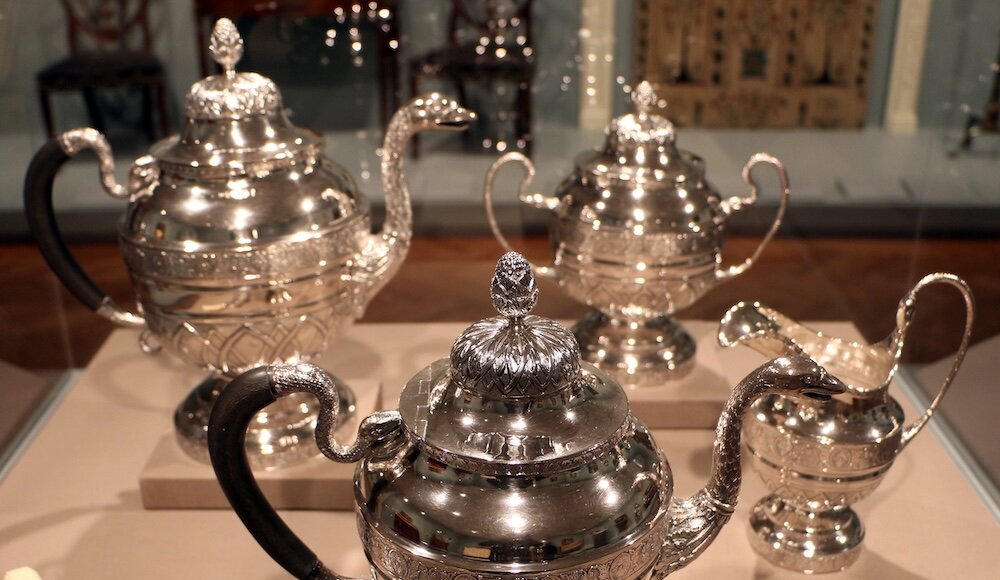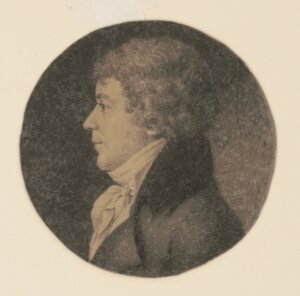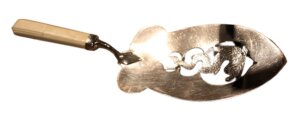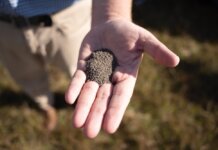
Among the souls buried in Mobile’s Church Street Graveyard there lies a French-born artisan, orator and writer. In his first 25 years in America, Jean Simon Chaudron plied his trade in Philadelphia and counted Founding Fathers as clientele.
Few have been more simultaneously ardent in their devotion to two nations; Chaudron was thoroughly French and proudly American. He came to Alabama in 1819, in the months before statehood, drawn to an unfamiliar place by dreams of a new colony of French refugees. The man known for producing fine pieces of jewelry and silverwork traded the bustling streets of Philadelphia for the fields of an Alabama frontier.
He was born on Oct. 28, 1758, in the French province of Champagne. Raised by an aunt and uncle, he was apprenticed to a Swiss silversmith. Early in his career, he began a lifelong attachment with Freemasonry. In Paris, he was associated with Neuf Soeurs (“the Nine Sisters”), a lodge whose membership rolls reportedly included Benjamin Franklin and the philosopher Voltaire.

In 1784, Chaudron migrated to the French colony of Saint Dominique, known today as Haiti. He busied himself for several years exporting French goods and silver to America. In 1791, he married Jeanne Genevieve Stollenwerck. They would have 11 children. Two years later, amidst the Haitian Revolution, Chaudron and his growing family came to America. They settled in Philadelphia, where he had previously traveled on several occasions. Here, in the capital of the young, American nation, Chaudron went into business as a silversmith, watchmaker and jeweler. Here he became a naturalized citizen in 1805.
His skills and his Masonic connections endeared him to many well-known residents in and out of government. In 1807, President Thomas Jefferson purchased a fine watch from Chaudron as a gift for a granddaughter.
Chaudron’s role in producing sought after pieces of silver appears to have focused on the finer details. As a jeweler, he would have been skilled in engraving and adding embellishments and other intricacies to the silver produced by his associates. Some of his finest work came in partnership with Anthony Rasch, a Bavarian immigrant who trained as a silversmith in Germany. Pieces bearing their marks are now held in museums in New York, Illinois and Alabama.
Hundreds of French immigrants lived in Philadelphia at the time, and Chaudron placed himself at the center of their vibrant cultural community.
On New Year’s Day, 1800, he delivered a celebrated public eulogy for George Washington. At the French lodge L’ménité, in a room draped in black crape, Chaudron spoke at length on the life of the nation’s first president. He contrasted Washington’s inauguration with the “pompous entry of sovereigns” in other countries he had witnessed. Chaudron called upon coming generations to visit the places where Washington had walked — the battlefields and halls of early American power — in his honor and to “water the [places] of his triumph with tears of gratitude.”
Translated quickly into English, Chaudron’s oration enjoyed wide distribution. That the orator was French no doubt gave added cachet to his words, since they were delivered at a time when his native land and adopted America were in a near state of warfare. President John Adams called the memorial “exquisite…. one of the handsomest compliments to the memory of the General.”
In 1815, the artisan and orator also became an editor. Chaudron’s name appeared atop the masthead of L’Abeille Americaine (“The American Bee”), a popular new French-language weekly newspaper. Thomas Jefferson ranked among the paper’s regular readers. Joseph Bonaparte, brother to Napoleon, was a financial backer.

Chaudron used the paper to advocate for a new commercial venture: the ill-fated Vine and Olive Colony established by French expatriates in Marengo County, near present-day Demopolis. Scholars credit Chaudron’s editorials with helping popularize the notion of a land grant for the cultivation of olives and grapes. In 1817, the U.S. Congress laid aside 92,000 acres for the purpose.
Chaudron’s motives were pure. He wanted to establish his large family as landowners in the opening American frontier. He further wrote to a friend of his desire to “get out of the mire of large cities where nothing is fashionable but prejudice and pride.”
An elder son went to the new colony first. Once their land was cleared and construction of a home was underway, other family members made the trek. In the spring of 1819, after 25 years in Philadelphia, the time came for 61-year-old Jean Simon Chaudron to make the journey. Prior to his departure, he penned a farewell to Thomas Jefferson. In his warm reply, the former president offered “best wishes for your prosperity, health and happiness and assurances of my great esteem & respect.”
In Marengo County, Chaudron continued writing, turning increasingly to patriotic verse about French and American history. A collection of these works was published in France in 1841, by which time failing eyesight from cataracts had earned Chaudron a sobriquet as “The Blind Poet of the Canebrake.”
Cultivating olives and making wine in Alabama proved a far greater challenge than the colonists expected. Obstacles mounted. Their imported vines withered and died. The financial Panic of 1819 slowed land sales and devalued the property. Cotton-hungry land speculators circled. Within 15 years, most French landowners sold their plots and left. In 1825, Chaudron made his way to Mobile. In Alabama’s port city, founded by the French in 1702, he hung his shingle once again, repairing watches and ship chronometers, selling silver and dabbling in the importation of French goods. As he had done in Philadelphia, Chaudron became an integral part of Mobile’s culture.
Chaudron died on Oct. 28, 1846, on the occasion of his 88th birthday. As a Parisian newspaper noted at the time of his passing, “He had no other masters than his natural lights, his love of labor, and his thirst for knowledge.” He was a self-made man, a joiner and risk-taker, an artist, editor and orator, a dreamer, a Frenchman and an American. Full indeed, were the years of his long life.
Historian Scotty E. Kirkland is a freelance contributor to Business Alabama. He lives in Wetumpka.
This article appears in the October 2025 issue of Business Alabama.



